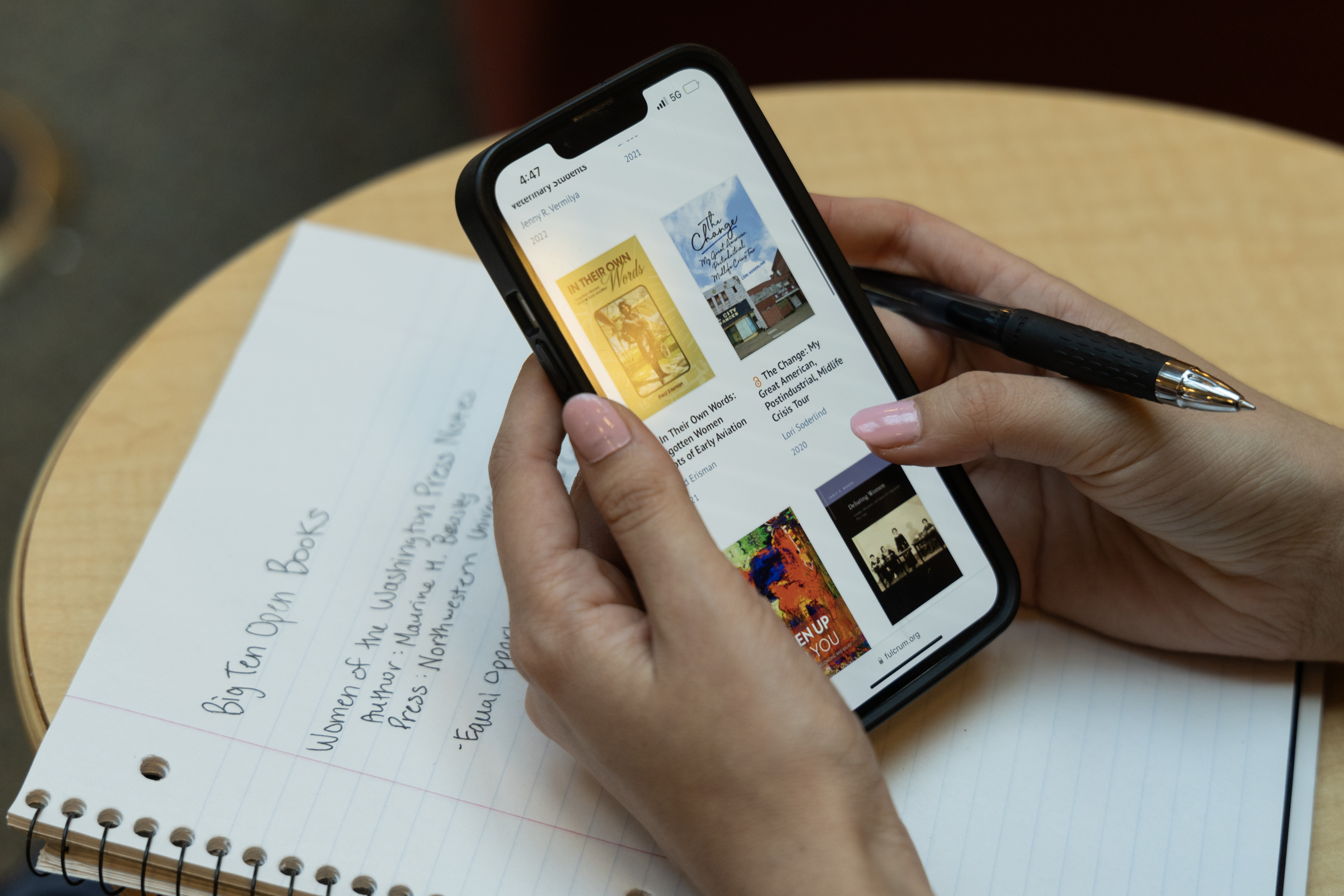
What does "access for everyone" mean for Big Ten Open Books?
Making ebooks "free to read" is just part of the story.
Big Ten Academic Alliance university presses and libraries have partnered to make Big Ten Open Books titles open access. This means they are free-to-read to anyone with an Internet connection. They are also openly-licensed under Creative Commons licenses which make most of the titles free to reuse in any non-commercial way. All the books can also be downloaded as both PDF and EPUB3 files, meaning that readers can use them offline as well as online. We don't apply any "digital rights management" (DRM), so when you download a file it won't "expire."
While PDFs are very familiar, EPUB3 files may be less so. EPUB3 is a World Wide Web consortium standard format that allows publications such as ebooks to be fully part of the Internet environment. One implication of this is that EPUB3 files are fully machine-readable, which means that texts can be resized to work well on different forms of reading devices - from mobile phones to desktop computers. Another implication is that screen-reading software is able to work seamlessly with the file format, which makes reading easier for visually-impaired users or those with different learning styles.
While machines can read the text in EPUB3s, they need a bit more help with the images. For this reason, all of the titles in Big Ten Open Books have had visual descriptions of images added - both short-form "alt-text" and longer "described-by" text. Our goal is to make sure that every reader gets the best possible reading and use experience, but we know we will sometimes fall short. If readers encounter any challenges reading titles on Big Ten Open Books, we want to know -- please contact us.
Big Ten Open Books is a component of the BIG Collection, an initiative of the libraries of the Big Ten to unify our collections, and, within the Big Ten, to provide "any content, from anywhere, to anyone. . .now and in the future.” Part of that goal is to increase access to the publications produced by our institutions.